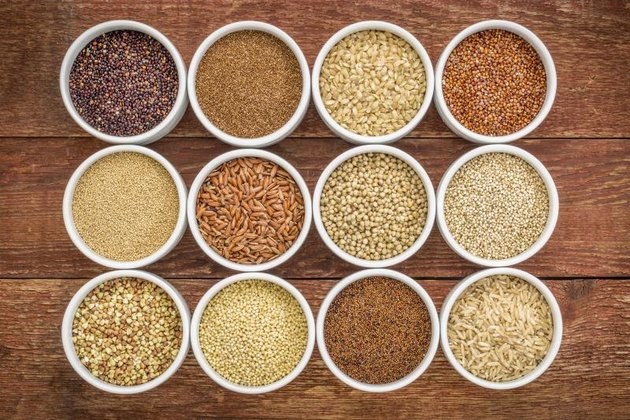In an age where dietary choices can have profound implications for health, the spotlight increasingly shines on whole grains. These nutrition powerhouses harbor an array of vital nutrients, from fiber to essential vitamins and minerals, promising robust health benefits. New research underscores an intriguing assertion: that consuming whole grains may significantly reduce the risk of heart failure. This notion invites a paradigm shift in how we perceive these humble staples.
Heart failure, a debilitating condition increasingly prevalent in modern society, often hinges on lifestyle factors, particularly diet. Traditional culinary practices have emphasized refined grains, inadvertently steering consumers away from the healthful advantages that whole grains confer. The distinction between whole and refined grains is crucial. Whole grains comprise all parts of the grain — the bran, germ, and endosperm — retaining their nutrient density. In contrast, refined grains have been stripped of vital components, yielding a product that falls short nutritionally.
Scientific inquiries reveal that whole grains, such as brown rice, quinoa, barley, and whole wheat, are packed with dietary fiber. This fiber not only facilitates robust digestive health but also plays a pivotal role in cardiovascular well-being. A high-fiber diet has been linked to lower cholesterol levels, improved blood pressure, and reduced inflammation—factors intimately connected to heart health. By including whole grains in one’s diet, there exists a fascinating potential to cultivate a fortified cardiovascular system.
The specifics of how whole grains reduce heart failure risk hinge on their impact on metabolic processes. Whole grains have a low glycemic index, which contributes to stabilized blood sugar levels. This stabilization, in turn, mitigates the risks associated with metabolic syndrome—a precursor to heart disease—illustrating yet another layer to the multifaceted benefits of integrating whole grains into everyday meals.
Moreover, the micronutrients found in whole grains, such as magnesium, iron, and folate, are instrumental in various physiological functions, ensuring that the body operates at peak performance. These nutrients also enhance blood vessel function and reduce inflammation, both vital components in a heart-friendly diet. Not only do they support structural integrity, but they also promote elasticity in blood vessels, a factor often overlooked but critical in maintaining optimal cardiovascular health.
Incorporating whole grains into your dietary repertoire does not necessitate drastic changes. Small, intentional modifications—substituting white bread for whole grain, opting for brown rice over its polished counterpart, or experimenting with ancient grains—can yield significant health dividends. Such strategies not only contribute to heart health but also make meals more diverse and flavorful.
The intertwining of whole grains and heart health unveils a narrative ripe for exploration. As research continues to illuminate the myriad benefits of whole grains, the call to action is clear: embrace these nutritional titans to defend against heart failure. In doing so, individuals can transform their culinary habits while simultaneously fostering a more resilient heart. Isn’t it time to elevate whole grains on the dietary hierarchy? The promise of health awaits.
